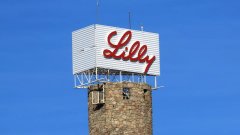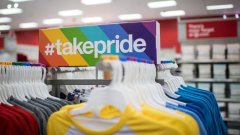
Both Bubble and – two brands that have used TikTok to – also said they expect sizable sales this holiday from parents looking for gifts for their Gen Alpha kids.
"We definitely see it on TikTok. We've seen a lot of kids and a lot of people are posting their holiday wish list [and we're] getting tagged very often," Shai Eisenman, Bubble's founder and CEO, said in an interview.
Tarang Amin, CEO of e.l.f., said young people's burgeoning interest in skin care is part of the reason the company has invested in the category, including through its recent acquisition of skin-care company Naturium.
"It's never too soon to take care of your skin, particularly on sun protection," said Amin.
Generation Alpha's interest in skin care comes as millennials and Gen Z consumers also lean deeper into the category — a trend that many say began during the Covid pandemic, when people stopped wearing makeup as often and began focusing more on self-care.
Between 2019 and 2022, annual prestige skin-care spending grew from $6.6 billion to $8 billion, according to Circana. As of September, spending is up 14% this year compared with the same period a year ago.
Meanwhile, mass skin-care sales grew from $7.8 billion to $9.2 billion between 2019 and 2022, according to Circana. Spending is up 10% this year, as of September.
Piper Sandler isn't yet tracking Gen Alpha. But according to its most recent , where the average age of respondents was 15.7, skin-care spending this fall climbed 19% year over year to an average of $122. It was 16% higher than the multiyear average.
That's no surprise to Salt Lake City dad Rick Aaron, whose daughters Allie, 15, and Katie, 13, have been religious about skin care since they were about 10- and 8-years-old.
"My wife recently purchased a [mini-fridge] to keep all of her and the girls' skin-care products in, saying that it needs to be refrigerated and will deteriorate over time at room temperature," said Aaron, 45. "And then my wife has recommended, 'well it's not going to be big enough, so maybe we need to buy a second mini fridge just for skin-care products.'"
When asked how much money he spends on his daughters' skin-care habit each month, he told CNBC he doesn't know – and doesn't want to.
"Between the subscriptions and Amazon purchases and store purchases ... it's probably close to, if not over, $1,000 a month," said Aaron. "I would probably break down in tears if I actually saw a hard figure on it."
In the bright white lights of the bathroom she shares with her mom, 7-year-old Marley-Rose addresses her camera as she prepares for her nightly skin-care routine.
"Hey guys, it's me Marley and today I'm doing my skin-care routine," Marley says in the clip, which was filmed last month and shared with CNBC.
With her hair neatly pulled into matching buns on either side of her head, Marley shows off her Youth to the People superfood face cleanser, a moisturizer from the same brand and a Laneige toner before she begins cleansing and moisturizing her face.
"I'm going to do it upwards because, well, um, if you do it downwards, your face is gonna be droopy at an early age," Marley explains as she applies the toner.
Two minutes later, Marley ends the clip with a smile and says she'll be back soon for her next skin-care routine.
"I just never imagined at 7 years old she's going to come up to me and ask about skin care and wanting to buy it," Marley's mom, Karla Joseph, 41, told CNBC in an interview.
She said Marley first became interested in skin care last month after she watched a TikTok video of a teenager doing her routine. After securing some products of her own, Marley now has her own ritual for mornings and nights and shares videos of it on social media.
"It's a different time, you know? They're on their phones, they're on the internet and they see all this stuff and they want to try it," Joseph said. "I kind of just have to roll with it because this is what they're exposed to."
For her eighth birthday last weekend, Joseph took Marley to Sephora and is already preparing to buy her daughter myriad skin-care items for Christmas.
She said her daughter's interest in skin care is "great," and better than playing around with makeup. But she's been researching products to make sure they're age appropriate.
That diligence is crucial for any parent whose kids are interested in skin care, said Dr. Amy Wechsler, a board certified dermatologist and psychiatrist.
"I love a routine. I think routines in general are a great idea … especially if that routine includes sunscreen," Wechsler told CNBC in an interview. "But on the flip side ... preteens using products that are often too harsh for their skin because they're adult products is not a good idea."
Wechsler, who runs a New York City practice, said her Gen Alpha patients frequently come in with rashes, irritation, dryness, flakiness and even swelling in their faces and eyes from using skin care products that weren't appropriate for their young skin.
"I had a kid yesterday that she felt some peer pressure at a sleepover and she knew she kind of had sensitive skin, but she tried some mask or some new product that her friends were all using because she wanted to be part of the group, and then she got an itchy rash on her face," said Wechsler. "The treating it is pretty easy, but you want to prevent that from happening again."
She said plenty of skin-care products are safe for kids, and a routine could promote self-esteem, as long as it doesn't become obsessive.
Considering how young Gen Alpha is, and that the generation isn't done being born, it's tough to parse out what kind of effect the group is having on skin-care sales. But the age group is on pace to transform the overall consumer landscape.
Gen Alpha is expected to be the largest generation yet, with roughly 2.5 billion people by 2024, and the group is projected to have the greatest spending power in history, according to demographer and social researcher Mark McCrindle. He coined the term Gen Alpha and is considered a leading expert on the generation.
By the end of 2024, when the oldest Gen Alphas will be 14, more than $5.39 trillion will be spent on them annually around the world, according to estimates from McCrindle.
That spending dwarfs the purchasing power of millennials and Gen Zs, which is estimated to be around $2.5 trillion and $3 trillion, respectively, according to research and projections gathered by .
"They're the most materially endowed, the most globally connected, the most digitally integrated, they're going to be the most formally educated we predict as well, so they're going to be a very influential generation," said Ashley Fell, a social researcher at McCrindle's firm who co-wrote a 2021 book with him on Gen Alpha.
"It's something that every brand should be thinking about."
If they're not, Fell said, they risk becoming "irrelevant."
— CNBC's Melissa Repko contributed to this report.
Don't miss these stories from CNBC PRO:




